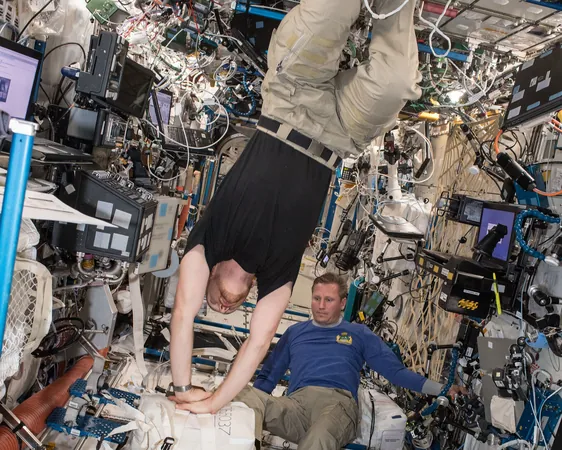
Earth’s Rotation Is Speeding Up: What Does It Mean for Our Days?
2025-07-04
Author: Yu
Are Our Days Getting Shorter?
In a surprising twist of nature, scientists have revealed that Earth’s spin is accelerating, resulting in shorter days by mere milliseconds. This phenomenon raises the intriguing possibility that by 2029, we might actually subtract a leap second from atomic clocks for the first time ever!
The Dance of Time and Earth
Our planet usually takes 86,400 seconds to complete a rotation, equating to a typical day. However, this duration isn't entirely consistent. From gravitational pulls to geophysical changes, various forces gradually alter Earth's rotation. Historically, the length of a day has evolved—days were around 23 hours in the age of dinosaurs, and by the Bronze Age, days were still shorter than today.
The Fast Track: What's Behind the Acceleration?
Since 2020, Earth's rotation has been unexpectedly speeding up, according to the International Earth Rotation and Reference Systems Service (IERS). This change suggests we might need to adjust Coordinated Universal Time (UTC) by subtracting a leap second, a significant shift in timekeeping protocols. Traditionally, leap seconds have been added to account for Earth’s gradual slowdown.
Upcoming Shortest Days of 2025
Excitingly, experts have forecasted that July and August of 2025 will host the shortest days yet, specifically hitting peak speeds on: - July 9, 2025 - July 22, 2025 - August 5, 2025 On August 5, a day may last up to 1.51 milliseconds shorter than the standard 24 hours—slight, but a notable scientific difference.
What’s Causing This Phenomenon?
While the exact cause of Earth's rapid spin is not fully understood, scientists are investigating several factors, including: - Seismic activity - Changes in the dynamics of Earth’s core - Glacial rebound (land rising post-ice melt) - Shifts in ocean currents and atmospheric pressure. Leonid Zotov, a researcher from Moscow State University, expressed surprise at this occurrence saying, "Nobody expected this," emphasizing the complexity of Earth's mechanism.
No Need to Panic—Just a Technical Adjustment!
Despite these remarkable findings, scientists assure us there's no cause for alarm. The slight acceleration of Earth’s rotation, while rare, is not without precedent. The removal of a leap second in 2029 is simply a routine adjustment to maintain synchronization between atomic clocks and Earth’s rotation, leaving daily life and global systems unaffected. It serves as a fascinating reminder of how intricate and dynamic our planet truly is.
In Summary
As we keep track of time, it's vital to remember that even our most precise instruments are influenced by the forces of nature. The accelerating rotation of Earth might just change the way we measure our days.

 Brasil (PT)
Brasil (PT)
 Canada (EN)
Canada (EN)
 Chile (ES)
Chile (ES)
 Česko (CS)
Česko (CS)
 대한민국 (KO)
대한민국 (KO)
 España (ES)
España (ES)
 France (FR)
France (FR)
 Hong Kong (EN)
Hong Kong (EN)
 Italia (IT)
Italia (IT)
 日本 (JA)
日本 (JA)
 Magyarország (HU)
Magyarország (HU)
 Norge (NO)
Norge (NO)
 Polska (PL)
Polska (PL)
 Schweiz (DE)
Schweiz (DE)
 Singapore (EN)
Singapore (EN)
 Sverige (SV)
Sverige (SV)
 Suomi (FI)
Suomi (FI)
 Türkiye (TR)
Türkiye (TR)
 الإمارات العربية المتحدة (AR)
الإمارات العربية المتحدة (AR)